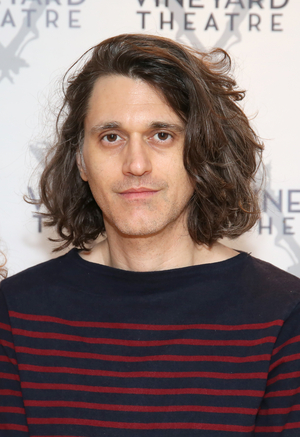Lucas Hnath's NIGHTNIGHT Premieres Today on Playwrights Horizons' Soundstage Podcast

Playwrights Horizons today (May 28) shares Episode 5 of their anthological scripted fiction podcast Soundstage: nightnight, by Lucas Hnath (Playwrights: The Thin Place, The Christians; Broadway: Hillary and Clinton, A Doll's House, Part 2). Directed, sound designed, and edited by Alex Barron (a dramaturg, theater producer, and producer for The New Yorker Radio Hour), nightnight takes the audience into the Space Station and mission control, overhearing ordinary workplace conflict in an extraordinary environment. With meticulous attention to detail, Hnath, Barron, and actors including Josiah Bania, Eboni Booth, Michael Cullen, Arian Moayed, Linda Powell, and Aaron Weiner (cast by Kelly Gillespie) vividly evoke the floating existence of a group of astronauts. Here, insomnia pairs with isolation-exacerbating paranoia and unmooring time.
In nightnight (recorded at CDM Studios, with additional production services and support from Acoustiguide), the nonvisual form lent itself to the sense of ungroundedness Hnath and Barron sought to create. Mechanical beeps seem to create slips in time in the middle of characters' lines; staticy, staccato communication is paired with the fluid, lulling piano of Chopin's Nocturne in F Minor. Barron and Hnath likewise worked through sonically delineating the two settings-mission control and space-and the actors' voices within them. Hnath says, "The first order of business was thinking about: without visual information, what storytelling challenges do we have? Instead of using a stage picture to orient the audience to the setting and circumstances of each scene, we used ambient sound and various filters on the actors' voices to give the listener a sense of place as well as a sense of where characters are in relationship to each other."
Says Barron, "It's not every day that you come across what's essentially a psychological thriller, set in space, written by one of the best playwrights writing. So, once I realized that that's what I was looking at, I immediately got excited. What became apparent as I spent more time with the piece is that Lucas' style is perfectly suited to audio. He creates worlds and evokes gripping, sometimes horrifying characters with incredible spareness and economy. You get so much of the play just from the dialogue, which is obviously a big leg up for a piece that's not going to have a set, or lights, or visible actors. So my job, I figured, was to use sound to immerse the audience in the world Lucas called up with his dialogue, and to hopefully do it with some small part of the spareness and economy he used. That was a challenge and a thrill. Plus, I got to design a space shuttle launch, which is the kind of opportunity you should jump at when it comes."
Much of the language within nightnight is inspired by the transcripts from the Apollo Soyuz, the first international space mission. Within that, Hnath took particular interest in the pairing of "ordinary observation mixed with highly technical language." He explains, "One of the things that's remarkable about being in space is the simplest action is really complicated. Going to the bathroom is really complicated, eating something is really complicated. Everything feels like it has enormous stakes attached to it. And these moments where the ordinary collides with the extraordinary can feel like poetry in a way; it makes you see the ordinary through the lens of strangeness. You see the everyday with new eyes."
Playwrights Horizons began production on it in 2019, motivated by the belief that playwrights are the great storytellers of our time, and inspired by the prospect of unleashing America's playwrights onto the fertile terrain of scripted content podcasting: a medium available to everyone, anywhere. Playwrights Horizons developed this podcast with the intention to release its first episodes later this year but decided to launch it sooner to serve its audience, as New Yorkers and people around the globe continue prolonged periods of social distancing. Previous Soundstage episodes have included Prime: A Practical Breviary by Heather Christian (Episode 1); Gather by Robert O'Hara (Episode 2); Play for any Two People by Jordan Harrison (Episode 3); and Outtakes by Qui Nguyen (Episode 4).
Playwrights creating later episodes include Kirsten Childs, Milo Cramer, Jeremy O. Harris, Carlos Murillo, Jenny Schwartz, and Kate Tarker. For Soundstage, acclaimed actors and award-winning directors, sound designers, and composers realize rich audio experiences in episodes 15-40 minutes in length. These works are available for free to listeners on all major podcasting platforms, including Apple Podcasts, Spotify, Google Podcasts, and Stitcher.

Videos


